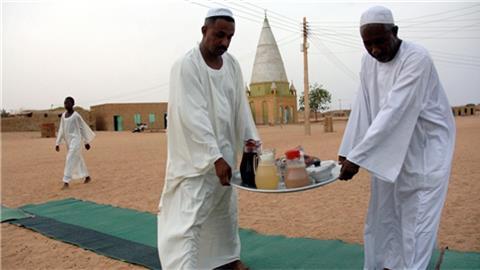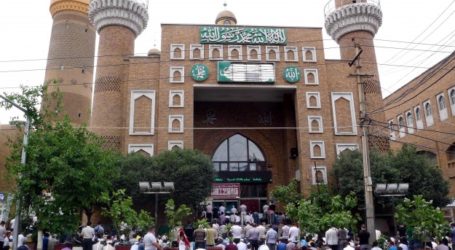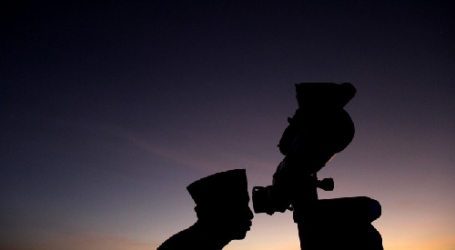SUDANESE YOUTH LAUNCH RAMADAN IFTAR CAMPAIGN


Khartoum, 20 Ramadan 1436/7 July 2015 (MINA) – Displaying some of the teachings of the month of Ramadan, a group of Sudanese youths have joined together to give the best they have to their society and modernize the manner of sharing food during Ramadan according to Al Jazeerah News.
“This is not new. Maybe the form of conducting it is, but the concept is as old as Sudanese society itself,” stated Mohammed Akood, a member Wosool, a youth organization for charity and education.
“Giving is cleansing for one’s soul. Besides, even if it’s just a handful of dates or a bottle of water, it still counts.
“The joy we see in people’s faces is enough,” he added. .” On Islam reports as quoted by Mi’raj Islamic News Agency (MINA).
In accordance with Ramadan traditions the youth intend to invest their energy to benefit society by creating a free Iftar zone aimed at reaching bus stations, hospitals, and other public places, delivering food baskets and water bottles.
Passersby will also be recipients of the charitable youth campaign, receiving a free iftar and a smile.
A member of the ruling National Congress Party (NCP), Rabie Abd Alaatie, believes that these efforts are simply the modern form of Ramadan’s long tradition of charity and aid work.
“This is a continuation of the ordinances put in place by our ancestors.
“These initiatives serve in combination with official efforts and plug the gaps,” Alaatie stated.
Political analyst, Osman Mudawi, said this kind of work can counterbalance other efforts that, despite being more formal, stumble over the roadblocks of inefficiency or even corruption.
“The [youths’] work … is an indication of a tendency to take initiatives outside ulterior motives, which can sometimes taint the same type of work done by politically affiliated organisations,” Mudawi added.
Ramadan is often characterised by the smell of hilomur, a traditional Sudanese drink that fills the air with its scent, as people prepare its dry form before the month begins.
These kinds of traditions, coupled with large family and community gatherings, can make the month of Ramadan a time of rising costs for families.
“Some families feel resigned to the fact that it’s not going to be easy to prepare for the month. That is when we come in,” said Mohammed Khair Alseed, another volunteer.
A Ramadan Initiative
The charity work evolved when a group of friends discussing how to help society came up with an idea that grew into a relief effort for families.
“A month before Ramadan, we started collecting donations from colleagues and friends and family to buy flour, food oil, dates, and sugar to give to families,” Mohammed Khair added.
Another volunteer revealed the secret of the programme.
“We launched an appeal on Whatsapp groups and opened a bank account where donations can be deposited,” said Sami Alshinawi.
By aiding vulnerable groups, such as jailed mothers to pay off their debts, the group has managed to help 60 people return home for Ramadan.
“It is incomprehensible for us that a woman would be jailed for an amount as little as $10, while her children are without help,” Alshinawi stated.
According to her, the initiative is on its way to achieving a second target of 100 people.
Another member of the group was proud of the fact that Jana has helped maximise the benefits of WhatsApp for charity.
“We chat all the time. But now we are able to make sure that the time we spend on social media will mean somebody ends up happy among their family.”
Ahmed Haroun is one of the volunteers using new forms of funding to further his work.
Before the advent of Ramadan, he launched a plea on WhatsApp for small sums of money through mobile credit transfer.
“Pooled together, these transfers allowed me to serve about 10 people a day, give or take,” he said.
Haroun uses the funds to help Sudanese with relatives in the hospital, who often don’t have the means or time to feed themselves when taking care of others.
“We make sure that we help them so that they can help their loved ones,” he added. (T/P002/R03)
Mi’raj Islamic News Agency (MINA)






